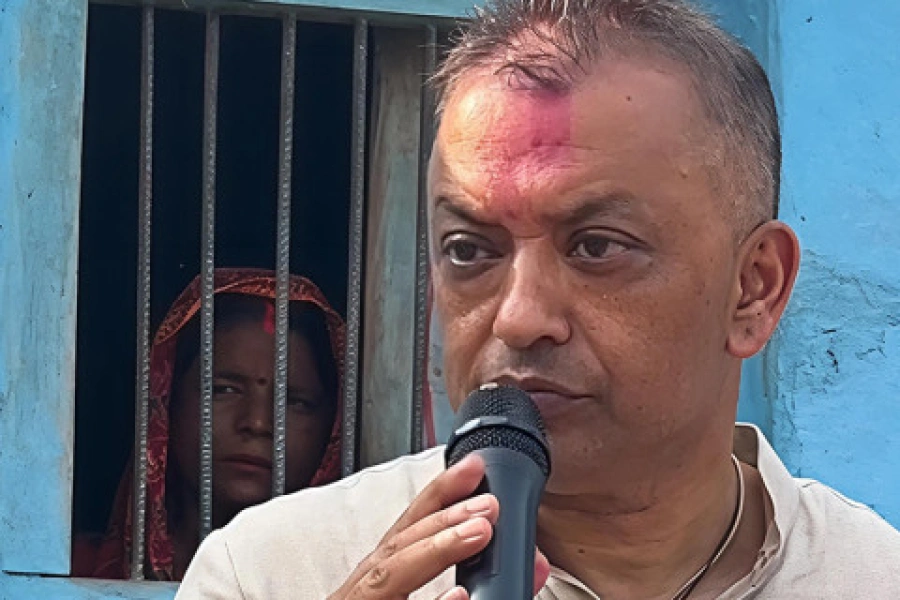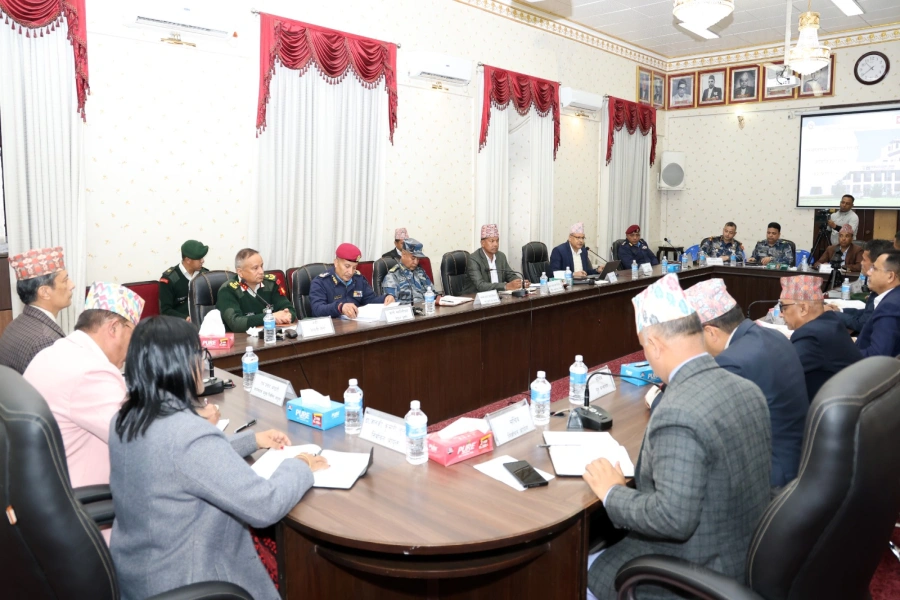KATHMANDU, Dec 16: The Commission for the Investigation of Abuse of Authority (CIAA) has raided the Department of Passport (DoP). The raid was conducted in relation to irregularities identified in the hacking of the server and weaknesses in the printing of e-passports. According to CIAA sources, the raid took place last Thursday, and all related documents have been seized.
The CIAA has shown concern over the about Rs 12 billion tender for the printing of e-passports and has seized related documents. Additionally, the CIAA has taken control of all documents for investigation regarding financial misconduct related to the DoP’s selection of IDEMIA, a company chosen for printing 2 million e-passports. The DoP had repeatedly obtained 3.1 million electronic passport variations from the company, raising concerns about financial irregularities.
The CIAA took a keen interest in the matter after news surfaced that IDEMIA, the company responsible for managing the DoP’s software, had caused technical issues.
For a week, news emerged that hackers had leaked information about technical issues, detected a virus, and released the tender details two days before claiming to resolve the problem. These actions were reported as suspicious. Furthermore, the department had not formally informed the Cyber Security Center or the Information Technology Center, though it had informally sought help. It remained unclear whether a cyber-attack had occurred. Nepal Police's Cyber Bureau had not been notified about the issue either.
Police write to Department of Passport to revoke GB Rai's passp...

IDEMIA, which has dominated Nepal's passport printing and software management for the last decade and a half, became active after news emerged that the company had used various tactics to secure a new tender. Previously, the company had increased its profits by printing more variations than the tender required, and to influence the new tender, it created issues within the system to produce a favorable impact.
On November 28, the DoP released two tenders, one of which included a clause (point 9) allowing acceptance if a single company met the criteria for both tenders. This clause was designed to include only IDEMIA, the company managing the software. After the tender was issued specifically targeting this company, the issues in the passport system began to be resolved.
However, the Director General of the DoP, Tirtha Raj Aryal, stated that the process of issuing the tender and the current issues are unrelated. "The tender process is lengthy, and every point is discussed. After long discussions, the tender is processed based on the opinions and advice of technical experts. The notice issued on November 28 and the issues in the system cannot be linked. The tender has been issued in accordance with the laws and regulations. This is for new competition and cannot be connected with the old one," said Director General Aryal.
After issues arose in the software system, IDEMIA's representatives in Nepal had the opportunity to manipulate the tender document. They pressured DoP staff, giving the impression that without their involvement, the passport process could not function. This led to the inclusion of point 9 in the tender published on November 28. Siddhartha Pandey is the representative of IDEMIA in Nepal.
IDEMIA, the company that entered Nepal along with the MRP passport distribution, and senior officials of the department had been repeatedly taking variations, even though the department had issued the tender. However, after the tender process was tailored to favor the same company, the CIAA became concerned. In the previous case, the CIAA was investigating the involvement of department staff regarding the repeated taking of 3.1 million passport variations from the company, which was originally selected for printing 2 million passports, and the reasons behind it.
The CIAA became serious about the issue of taking economic benefits from Siddhartha Pandey, the representative of IDEMIA in Nepal, through the 3.1 million passport variations. The investigation began after it was found that passports were being taken through variations at the original cost, without reducing the infrastructure and technology costs.
As the CIAA started its investigation, sources claim that Pandey attempted to influence the inquiry by approaching various power centers. He even tried to meet with Foreign Minister Arzu Deuba, according to the sources. The Foreign Minister is currently on an overseas visit.
The DoP has set specifications in a way that favors the same company, which is now set to print 6.4 million passports through the competitive process. This has raised objections from government computer engineers in Nepal. Sources claim that while printing 3.1 million passport variations, the DoP incurred a loss of 2.45 million dollars.
Sources claim that department employees started distributing passports by taking financial benefits from the company's agent. The Office of the Auditor General mentioned in its 2080 BS report that there was financial irregularity when, on September 8, 2022, a decision was made to purchase an additional 300,000 passports with 15 percent variation on the 20 million passports printed through the tender, at the previous rate.





























-1200x560-1771928761.webp)









